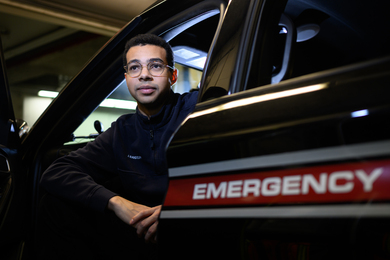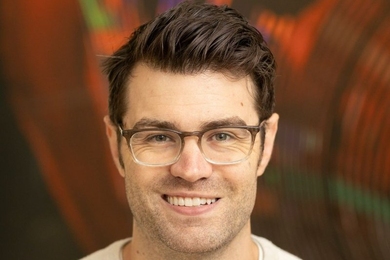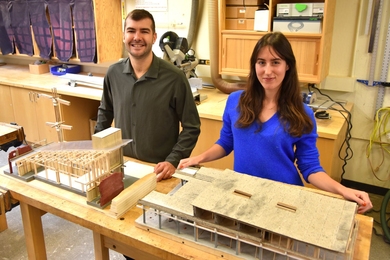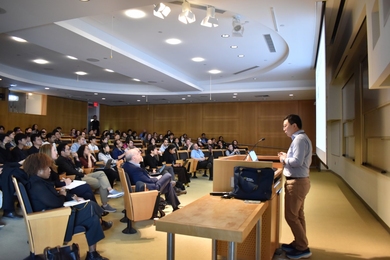More than 550 leaders, innovators, and entrepreneurs convened on MIT’s campus May 7-9 for Solve at MIT, Solve’s annual flagship meeting. Attendees traveled from more than 28 countries to connect with Solver teams, discuss new ideas, and advance solutions to some of the world’s most pressing problems.
The event featured five inspiring plenary sessions with visionary speakers such as Alaa Murabit, high-level commissioner of health employment and economic growth at the United Nations; Wendy Schmidt, president of the Schmidt Family Foundation; and Tristan Harris, co-founder and executive director of the Center for Humane Technology.
Members of the Solve community — including leaders from Oxfam, Starbucks, and the World Bank Group — met 40 Solver and Fellow teams and, through intimate working group sessions, advised these entrepreneurs and built partnerships to scale their solutions.
In addition to advising 2018 Solver teams, attendees also brainstormed ideas to address Solve’s 2019 Global Challenges: Circular Economy, Community-Driven Innovation, Early Childhood Development, and Healthy Cities.
Alex Amouyel, Solve’s executive director, announced a prize pool of $1.5 million in funding for selected solutions to these new challenges. Prize funders include General Motors, Vodafone America, and the Patrick J. McGovern Foundation. Amouyel reminded the Solve community that “our brightest future lies in the use of technology to make the world a better place” and encouraged innovators around the world to submit their solutions.
During the event, Solve also announced the launch of the Solve Innovation Fund, a philanthropic venture fund that will direct catalytic investments in early-stage entrepreneurs solving global challenges. The fund will raise $30 million over time from philanthropic donors who can contribute through tax-deductible gifts to MIT.
Noubar Afeyan, founder and CEO of Flagship Pioneering and MIT Corporation member, committed up to $3 million as the fund’s founding anchor donor. “It's highly unlikely that a reasonable idea is going to change the world,” says Afeyan. “You have to find a way to persist until the world considers it reasonable."
In the opening plenary, “Tech for Equality,” speakers discussed how to leverage local innovation to design and deploy technology that addresses inequality. "We would be remiss to talk about tech for equality without talking about power,” says Murabit.
“Oftentimes the tech is imported … If the people who are most impacted by the solution are not the first people at the table, if they are not architecting the solution, then the solution will simply not work."
Panelists in the “Innovation for and by Women” session debated various forms of gender inequality — from the gender data gap to sexism in the workplace to unequal access to financial tools.
In reflecting on her own career, Crate and Barrel CEO Neela Montgomery said, “It's critical for women who are making career choices to ask: 'Does the data match the rhetoric? Are they really committed to letting me to be my best self?' There's such a war for talent. You have the power now to really drive cultures to change."
Discussions during the “Diving into Data for Good” session examined the incongruous nature of technology, data, and society. "We have paleolithic emotions, medieval institutions, and godlike technology,” says Harris.
“YouTube has hired 10,000 content moderators to say they're going to block the bad pieces of conspiracy-theory videos. But how many engineers at YouTube speak the 22 languages of India, where there's a key election coming up? Are these really neutral tools, or is technology controlling the pen of history and tilting the playing field?"
Uplifting conversations in the “Investing in Refugees and Immigrant Entrepreneurs” session highlighted the critical importance of providing opportunities to unlock the potential of refugees and immigrants.
"The immigration experience is itself an entrepreneurial edge: a self-selected group of people that's ready to brave a new culture, a new role outside their comfort zone,” says Eveline Buchatskiy, managing partner of One Way Ventures. “So what you expect from them is the grit, the determination, and the ability to cope with change.”
In the closing plenary, “Science or Fiction — Creating the Future,” a diverse array of speakers — science fiction writers, a futurist, inventors, a philanthropist, and an academic — imagined the future of our world and debated the ways in which tech will impact society.
“I'm not sure if I'm comfortable with how we have hardened the borders of statehood. Historically we have been so accustomed to moving about, and that's how we became who we are. I am looking at a manuscript now where there’s an imperative to drop statehood and become citizens of Earth before we can participate in a higher government, which will be galactic,” says writer Karen Lord. “I wonder what would push us to that point and how we could accomplish it.”








